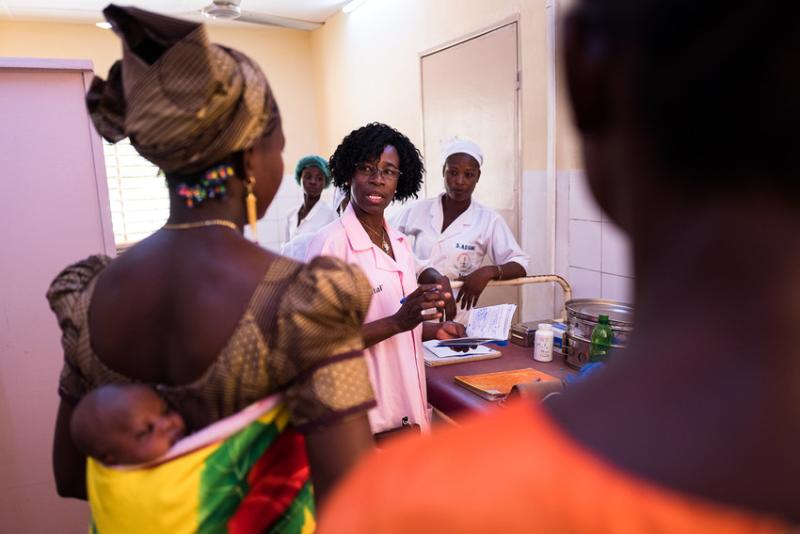Where We Work
See our interactive map


For many women in West Africa, a trip to the health facility involves traveling many miles from home. Now women can access more services during a single visit, thanks to the new integration model. Photo by Trevor Snapp for IntraHealth International.
More women in West Africa now have greater access to a wide range of services during their visits to health facilities, thanks to a new integrated service delivery model created by IntraHealth International. Our new INSPiRE integration model helps women get the most out of each visit, including services for maternal, neonatal, and child health (MNCH); nutrition; and family planning.
As part of our work on the Bill & Melinda Gates Foundation-funded INSPiRE project, IntraHealth and Burkina Faso-based partner IRSS assessed how family planning was being integrated into MNCH and nutrition programs in the nine countries of the Ouagadougou Partnership. The findings revealed some gaps, and the team worked with stakeholders from government, civil society, and nongovernmental organizations to develop a model to better coordinate and adapt service delivery to efficiently and effectively meet the needs of West African women and their children.
“Compartmentalization of care, low competencies of health workers, and the gap in health workforce and health protocols were the main barriers to integrating services,” says Marguerite Ndour, IntraHealth’s project director for INSPiRE. “We understood the need for a one-stop shop of integrated services.”
Immediate postpartum family planning increased by 96% in all INSPiRE-supported facilities in Burkina Faso and Niger from 2018 to 2019.
The INSPiRE integration model includes packages of MNCH, family planning, and nutrition services adapted to each level of the health system, including health worker training curricula and job aids, data collection tools that reinforce integrated service delivery, and virtual and in-person mentoring and supervision.
When implemented, the model increases the number of women who receive services and the range of services they receive during each visit. For example, a woman who comes in for a prenatal visit will also receive counseling on proper nutrition and her postpartum family planning options, creating opportunities to address her priority health needs. In this way, health services are more client-centered, offering women a full package of family planning, nutrition, and maternal health services all in one visit—saving time and money and resulting in a higher standard of care.
The model is getting results. Immediate postpartum family planning increased by 96% in all INSPiRE-supported facilities in Burkina Faso and Niger from 2018 to 2019. And 97% of women seen for a prenatal visit in an INSPiRE-supported facility in Burkina Faso also received family planning counseling.
“The INSPiRE model is a valuable practice,” Ndour says. “We hope to see more Ouagadougou Partnership countries adopting it at large scale—adapting policies and care guidelines for greater impact.”
IntraHealth’s work on the INSPiRE project is funded by the Bill & Melinda Gates Foundation. Check out the INSPiRE integrated service delivery model here.



